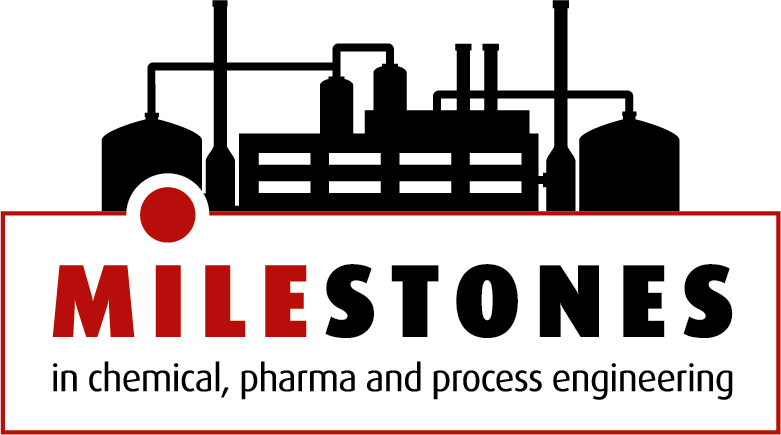:quality(80)/images.vogel.de/vogelonline/bdb/1860700/1860769/original.jpg)
Japan: Circular Economy Mitsubishi Chemical to Use HydroPRS Process for Plastics Recycling Unit
Mitsubishi Chemical Corporation (MCC) has plans to develop its first HydroPRS (Hydrothermal Plastic Recycling Solution) project in Japan. The plastics recycling unit will be situated at MCC’s Ibaraki Plant and is expected to process 20,000 tons of plastic waste annually.
Related Companies

London/UK – Following Mura’s announcement in June that Mitsubishi Chemical Corporation (MCC) had signed a licensing agreement with Mura Technology and KBR for HydroPRS, MCC has decided to develop its first HydroPRS (Hydrothermal Plastic Recycling Solution) project in Japan.
HydroPRS, the process which is licensed by Mura and KBR, is capable of recycling end-of-life plastic that would otherwise be incinerated, sent to landfill, or leak into the environment as plastic pollution.
By converting mixed plastics back into fossil-replacement oils and chemicals, HydroPRS enables plastic waste to be upgraded into new plastics and other products, including road materials.
Unlike many other recycling processes, there is no anticipated limit to the number of times the same material can be recycled with HydroPRS and the technology is able to process many types of plastic which currently cannot be recycled via traditional mechanical recycling processes. The use of supercritical water in the HydroPRS technology makes the process inherently scalable, allowing for efficient scale-up at point of need.
This latest project, which will be based at MCC’s Ibaraki Plant in Japan, is expected to complete construction in 2023. It will have the capacity to handle 20,000 tons of plastic waste per year – with MCC studying the possibility of increasing capacity in the future. Initially, the project will aim to use post-industrial plastics. With 9 million tons of plastic waste arising annually in Japan, MCC will seek to extend the scope of the project and target these plastics as raw materials.
This announcement is the most recent development in Mura and KBR’s collaboration and an evolution of the companies’ strong working relationship with MCC, which signed a licensing agreement for the Hydro-PRT process in June this year. In addition to this collaboration with MCC, Mura and KBR are currently exploring additional projects in Asia, the USA and Europe to supplement the global roll-out of HydroPRS and meet Mura’s goal of developing one million tons of recycling capacity by 2025.
(ID:47576898)




:quality(80)/images.vogel.de/vogelonline/bdb/1860200/1860286/original.jpg)
:quality(80)/images.vogel.de/vogelonline/bdb/1853500/1853514/original.jpg)
:quality(80)/images.vogel.de/vogelonline/bdb/1856600/1856612/original.jpg)
:quality(80)/images.vogel.de/vogelonline/bdb/1864400/1864439/original.jpg)
:quality(80)/images.vogel.de/vogelonline/bdb/1864200/1864264/original.jpg)
:quality(80)/images.vogel.de/vogelonline/bdb/1864100/1864177/original.jpg)
:quality(80)/images.vogel.de/vogelonline/bdb/1864100/1864145/original.jpg)
:quality(80)/images.vogel.de/vogelonline/bdb/1861000/1861090/original.jpg)
:quality(80)/images.vogel.de/vogelonline/bdb/1860300/1860328/original.jpg)
:quality(80)/images.vogel.de/vogelonline/bdb/1858200/1858200/original.jpg)
:quality(80)/images.vogel.de/vogelonline/bdb/1857100/1857117/original.jpg)
:quality(80)/images.vogel.de/vogelonline/bdb/1860700/1860757/original.jpg)
:quality(80)/images.vogel.de/vogelonline/bdb/1859600/1859657/original.jpg)
:quality(80)/images.vogel.de/vogelonline/bdb/1858300/1858367/original.jpg)
:quality(80)/images.vogel.de/vogelonline/bdb/1856700/1856747/original.jpg)
:quality(80)/images.vogel.de/vogelonline/bdb/1859700/1859771/original.jpg)
:quality(80)/images.vogel.de/vogelonline/bdb/1858000/1858082/original.jpg)
:quality(80)/images.vogel.de/vogelonline/bdb/1859000/1859000/original.jpg)
:quality(80)/images.vogel.de/vogelonline/bdb/1858300/1858328/original.jpg)
:quality(80)/images.vogel.de/vogelonline/bdb/1864400/1864464/original.jpg)
:quality(80)/images.vogel.de/vogelonline/bdb/1864300/1864344/original.jpg)
:quality(80)/images.vogel.de/vogelonline/bdb/1864200/1864290/original.jpg)
:quality(80)/images.vogel.de/vogelonline/bdb/1807900/1807985/original.jpg)
:quality(80)/images.vogel.de/vogelonline/bdb/1797900/1797927/original.jpg)
:quality(80)/images.vogel.de/vogelonline/bdb/1797600/1797603/original.jpg)
:fill(fff,0)/images.vogel.de/vogelonline/companyimg/101800/101879/65.jpg)

:quality(80)/images.vogel.de/vogelonline/bdb/1843600/1843663/original.jpg)
:quality(80)/images.vogel.de/vogelonline/bdb/1786300/1786346/original.jpg)